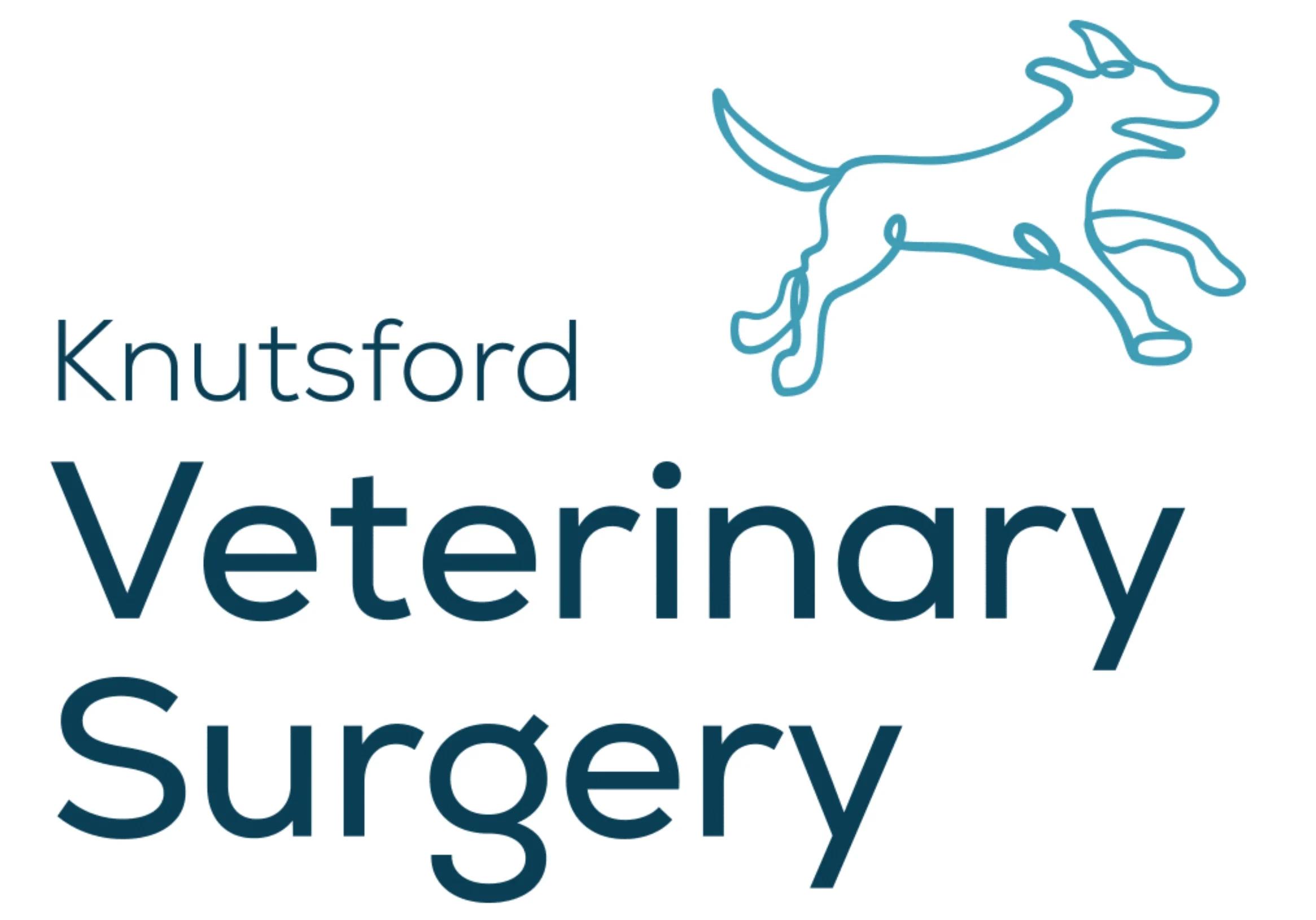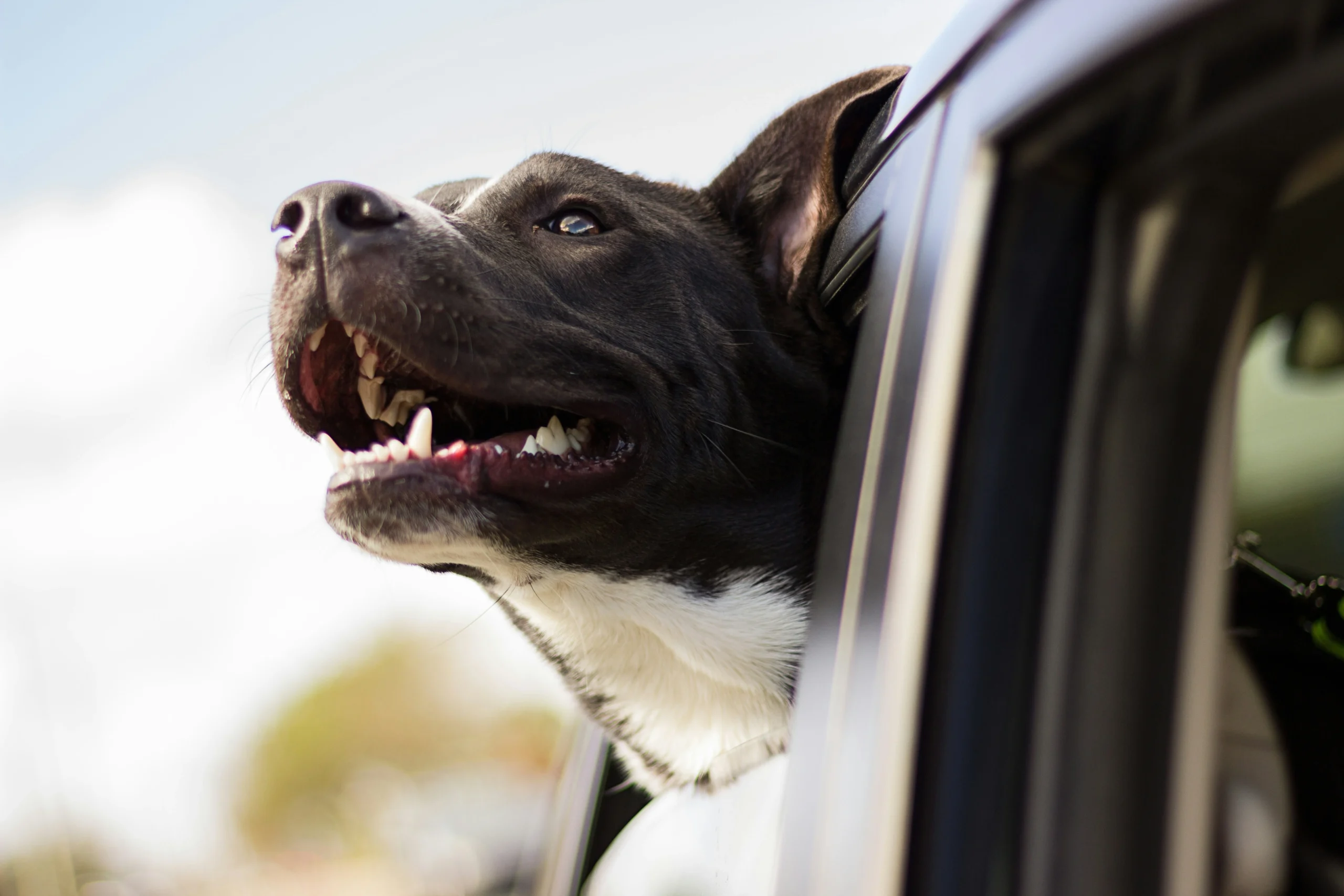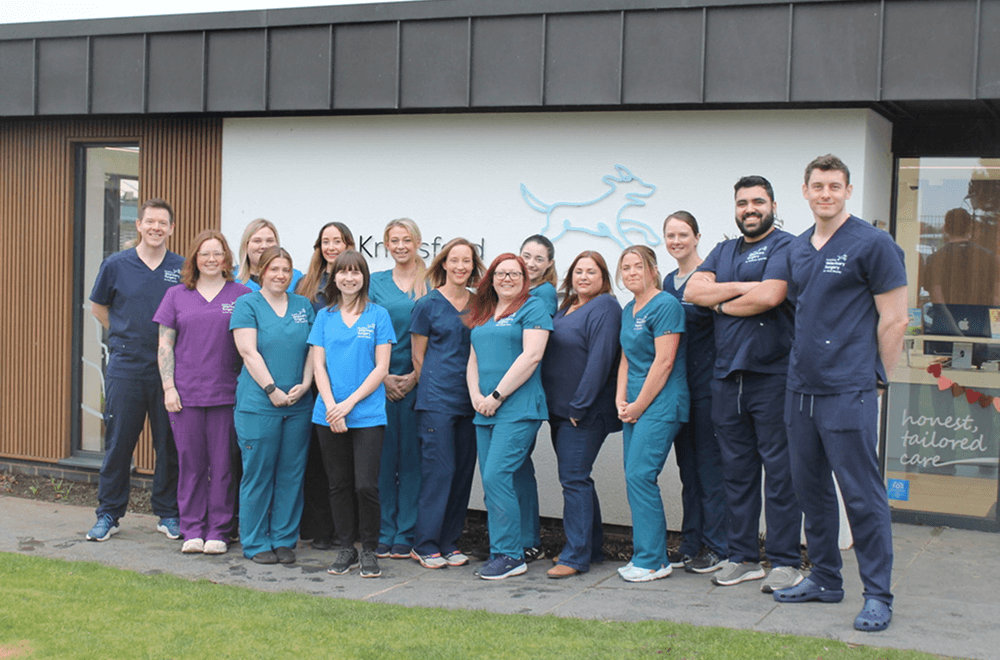Getting a new puppy is one of the most exciting things that happens in any dog-lovers life. Amongst all the playing, training and cuddling that goes on in those first weeks and months, it can be easy to forget the less fun (but vitally important) aspects of owning a puppy.
Vaccinations are an effective way to protect your puppy from infectious diseases and lower the risk of them becoming seriously ill. Many of the conditions covered by your puppy’s vaccinations can be life threatening. Not only this, but getting your puppy vaccinated also helps to prevent your puppy passing on dangerous infections to other dogs.
In this blog we take a look at when you should vaccinate your puppy and what you should expect from their vaccinations.
Contents
- When should I vaccinate my puppy?
- Puppy Vaccination Schedule
- What conditions are vaccinated against
- How to tell if your puppy has been vaccinated by the breeder
Vaccinations From Knutsford Vets
Book a vaccination appointment with Knutsford Vets online today.
When should I vaccinate my puppy?
Whilst your puppy is still with their mother, they have some level of temporary immunity, which they receive through the milk of their vaccinated mother. However, once your puppy has been weaned, they lose this protection and must not mix with other dogs or play where other dogs have recently been until the initial vaccination course has been completed.
Your puppies first vaccination should be given between 6-10 weeks old, which is then followed by a second set of injections 2-4 weeks later. At Knutsford Veterinary Surgery, we usually recommend for the initial vaccination to be administered at 7 weeks old.
Your puppy should be fully protected around two weeks after the second injection, and your vet will advise you on when your puppy can be introduced to other dogs and start exploring the great outdoors! Your puppy will then require their final vaccination of the primary course at around 12 months of age, followed by annual boosters into adult life.
Your vaccination appointments will also provide you with more than just an injection – your vet will check the overall health of your puppy and be on hand to answer any questions you may have. This is always a good opportunity to ask for advice if you are having any challenges with your puppy. It is also important to know that most puppies tolerate the injections very well, so try not to worry about your puppy being hurt – they tend to be much braver with these things than us humans!
“7 Weeks Old”
We recommend the primary vaccination from 7 weeks old, but you can take it as early as 6 weeks old.
Puppy vaccination schedule
The exact vaccination schedule that your vet recommends will depend on a number of factors. Here at Knutsford Vets we use the following schedule as a guide depending on the pet’s health and wellbeing at the time of the first vaccination. Every vet surgery differs, but in the UK they will usually follow something close to this.
How to tell if your puppy has been vaccinated by the breeder
Some breeders and rehoming centres may have started your puppy’s vaccinations before you adopt them. You should discuss this with the current owner or breeder before bringing your puppy home, so that you know when the next vaccination is due. The breeder or rehoming centre should give you some paperwork to go with your puppy, which you should bring to your appointment at the surgery so your vet can make sure your puppy is fully protected.
However, if for any reason you are unsure of your puppy’s vaccination history, you should contact the surgery for advice. Antibody tests can be conducted to establish whether vaccinations are needed, but this is not a reliable way to measure a puppy’s resistance to disease. Your vet will most likely recommend restarting the course of vaccinations, which will not cause any harm to your puppy.
For puppies with questionable or incomplete vaccination histories but over 10 weeks of age will receive Vanguard 7 and then 2 weeks later will receive vaccination against Leptospirosis only (Lepto ci)
Vaccinations are a vital part of your pet’s preventative healthcare.
What conditions are included in puppy vaccinations?
The four main diseases that your puppy will need to be vaccinated against are outlined below:
Canine distemper
Distemper virus attacks several systems within the puppy’s body, including the respiratory system and nervous system. Sadly, this very nasty virus can be fatal, and for puppies that do manage to survive, they are often left with long term neurological problems. The virus is transmitted via all bodily secretions, including saliva and urine. It’s most commonly spread through contact with an infected animal. Unfortunately there is currently no cure for distemper, and the only available treatments are ones that focus on alleviating the symptoms of the virus, for example medication to help control seizures.
Canine parvovirus
More commonly known as parvo, this is a highly contagious and fatal disease. Parvo is transmitted via contact with the faeces of an infected dog and worryingly the virus can survive in the environment for up to 9 months. Common symptoms in infected puppies include severe vomiting and diarrhoea, dehydration and fever.
Diarrhoea is often extremely bloody, known as (haemorrhagic gastroenteritis). Puppies who contract parvo will need to be hospitalised, where treatment will focus on preventing secondary infection and put on a drip to prevent dehydration. Unfortunately, a large proportion of puppies who contract this horrible disease will not survive, so it is vital that you get your puppy fully vaccinated to prevent them from catching it in the first place.
Leptospirosis
Also known as Weil’s disease, this disease is caused by bacteria, rather than being a virus. The main source of infection is through the urine of an infected animal, such as in contaminated water. Dogs who like to swim or drink from stagnant water or canals are at a particularly high risk of contracting this disease.
Symptoms include fever, lethargy, vomiting, bloody diarrhoea and jaundice. The disease also affects other species, including rats, who can spread the disease to dogs. For this reason, dogs that catch rats or live on farms may also be exposed to an increased risk.
Weil’s disease in humans can be fatal, and infected dogs can spread the infection to humans for months after being infected, so all things considered this is definitely not a vaccination you want your puppy to miss.
Canine Adenovirus
This is a viral disease which affects the liver, kidneys, eyes and lungs of a puppy. Is it spread via contact with the saliva, urine, faeces, blood or nasal discharge of infected dogs. Unfortunately, the urine of an infected dog can remain infectious for up to a year.
Signs of the disease vary, ranging from a slight fever to sudden death. Other symptoms to look out for include loss of appetite, coughing, fever, abdominal pain and jaundice. There are two versions of this virus – one causes a kennel cough type infection, the other causes hepatitis (an infection of the liver).
Canine parainfluenza
This is a highly contagious and airborne respiratory infection. Although it does not usually cause severe symptoms in puppies, it is important to vaccinate against it to minimise the spread.





